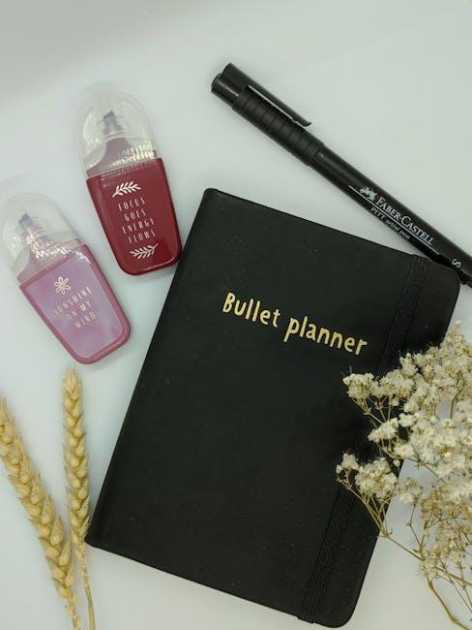as the Emerald Isle beckons with its rich history, stunning landscapes, and vibrant culture, countless international students find themselves captivated by the prospect of studying in Ireland. In 2025, the journey too becoming a student in this enchanting country requires navigating a specific set of visa requirements and procedures designed to facilitate a smooth transition for newcomers. This thorough guide serves as your roadmap, offering a step-by-step breakdown of the Ireland student visa submission process. Whether you’re drawn by the promise of world-class education, a unique cultural experience, or the prospect to explore the breathtaking vistas, understanding the intricate details of obtaining a student visa is the crucial first step toward your academic adventure in Ireland. Join us as we unravel the essential requirements and practical tips to help you embark on this exciting journey with confidence and clarity.
Understanding Ireland’s Student Visa Categories and Eligibility Criteria
When considering studying in Ireland, it is indeed essential to understand the various student visa categories available for international students. The main routes include the Study Visa, suitable for full-time courses leading to a recognized qualification, and the Short Stay Visa, designed for non-EU students who intend to attend courses lasting less than 90 days. Each category serves a distinct purpose, and eligibility often depends on the duration and nature of your study program. Additional visa options may also cater to those seeking internships or educational training opportunities, ensuring that students have a path tailored to their educational needs.
To qualify for the study Visa, applicants typically need to meet several criteria, including proof of acceptance into a recognized educational institution, sufficient financial resources to support themselves during their studies, and health insurance coverage. Furthermore, non-native English speakers may need to provide evidence of language proficiency through recognized tests. To simplify the eligibility assessment, here’s a table outlining the key requirements for each visa category:
| Visa Category | Duration | Key Requirements |
|---|---|---|
| Study Visa | More than 90 days | Acceptance letter, financial proof, health insurance |
| Short Stay Visa | Up to 90 days | Acceptance letter, financial proof |
Essential Documentation for a Successful Student Visa Application
When applying for a student visa to Ireland, having the right documentation is crucial to ensure a smooth process. Start by gathering essential paperwork such as:
- Letter of Acceptance: A formal offer from a recognized Irish educational institution.
- Proof of Financial Support: Documents showing you can cover tuition fees and living expenses, like bank statements or sponsorship letters.
- Passport Copy: A valid passport with at least 12 months’ validity from the intended date of arrival.
- Health Insurance: Proof of private health insurance valid in Ireland.
- Academic Records: Transcripts or certificates from previous education to prove your academic background.
Additionally, remember to prepare supporting documents that complement your application. Consider providing:
- Personal Statement: A brief explanation of your study plans and reasons for choosing ireland as your destination.
- Photographs: Recent passport-sized photos that meet specified visa guidelines.
- Visa Fees Payment Receipt: Evidence of paying the required visa application fee.
When compiling these documents, ensure thay are organized and clearly labeled, as this can significantly influence the efficiency and success of your visa application process.
Navigating the Application Process: Step-by-Step Insights
Embarking on your journey to study in Ireland begins with understanding the intricacies of the student visa application. It’s essential to gather the requisite documentation and stay organized throughout the process. Start by ensuring you meet the eligibility criteria, which typically includes having a valid acceptance letter from an accredited Irish educational institution, proof of sufficient funds to support your stay, and evidence of English language proficiency. A systematic approach will not only make the application more straightforward but also reduce potential delays. Here’s a brief checklist of documents you will need:
- Valid passport
- Letter of acceptance from your chosen institution
- Proof of financial means (bank statements or sponsorship letters)
- Medical insurance details
- Evidence of English proficiency (IELTS, TOEFL results, etc.)
- Completed visa application form and fees
Once your documentation is in order, the next phase involves submitting your application. This can typically be done online through the Irish Naturalisation and Immigration Service (INIS) portal. After submitting your application, you may need to schedule an appointment at your nearest visa office or embassy for biometric data collection. It’s advisable to apply well in advance—ideally two to three months before your intended travel date—to accommodate any unforeseen circumstances. Keep track of your application status online, and be prepared for any follow-up queries from the authorities. The table below outlines the general processing times for different visa types:
| Visa Type | Processing Time |
|---|---|
| Student Visa (long stay) | 8-12 weeks |
| Student Visa (short stay) | 4-8 weeks |
Tips for a Smooth Transition: preparing for Life in Ireland as an International Student
Moving to Ireland as an international student can be both thrilling and daunting. To ensure a smooth transition,it’s vital to prepare adequately for your new life. Consider researching your chosen city thoroughly,as each location brings its unique culture,amenities,and challenges. Familiarize yourself with local customs, transportation systems, and healthcare options. Additionally, establish a budget that takes into account your living expenses, tuition, and leisure activities. Here are some key aspects to focus on:
- Accommodation: Explore options like university housing or private rentals.
- Banking: Set up a local bank account to manage your finances easier.
- Public Transport: Get acquainted with the bus and rail systems to navigate efficiently.
Joining student organizations or social groups can significantly enhance your experience and help you forge connections. Many universities have clubs tailored for international students, providing a great platform for networking and making friends. Take advantage of orientation programs offered by your institution; they can help you settle in and provide indispensable information about academic resources and support services. Remember to also review importent administrative matters, such as:
| documents Required | Purpose |
|---|---|
| Passport | Verify your identity throughout your stay. |
| Visa | Legal authorization to study in Ireland. |
| Bank Statements | Proof of financial means for living expenses. |
| Admission Letter | Confirmation of your enrollment in a recognized institution. |
Q&A
Q&A:
Q1: What is a student visa, and why do I need one to study in Ireland?
A1: A student visa allows non-EU/EEA international students to study in Ireland legally. If you’re planning to enroll in a full-time course at a recognized Irish educational institution, a student visa is essential for your stay. This visa not only grants you the legal permission to study but also ensures you can engage in a culturally enriching experience in one of Europe’s most vibrant countries.
Q2: What are the eligibility requirements for an Ireland student visa in 2025?
A2: To be eligible for a student visa in Ireland, you must:
- Have an acceptance letter from a recognized Irish educational institution.
- Be enrolled in a full-time course that lasts at least 25 weeks.
- Demonstrate sufficient financial means to cover tuition fees, living expenses, and return travel.
- Show proof of health insurance valid in Ireland.
- Meet the English language proficiency requirement, typically through a recognized test such as IELTS or TOEFL.
Q3: What documents do I need to prepare for my student visa application?
A3: The application requires several critically important documents, including:
- A valid passport with at least six months remaining.
- A completed visa application form (available online).
- Payment receipt for the visa fee.
- Acceptance letter from your institution in Ireland.
- Evidence of sufficient funds (bank statements, scholarships).
- Health insurance documentation.
- Academic transcripts and certificates.
- passport-sized photographs.
Q4: How do I apply for the Ireland student visa?
A4: the application process is quite straightforward and consists of the following steps:
- Prepare your documents: Gather all required documentation listed above.
- Complete the visa application form: Access the online application via the Irish Naturalisation and Immigration Service (INIS) website.
- Pay the visa fee: You’ll need to pay the application fee online through the INIS portal.
- Submit your application: This can be done online or in person at the nearest Irish embassy/consulate.
- Attend an interview (if required): Some applicants might be asked to attend an interview to discuss their application.
- Wait for a decision: Processing times can vary, so apply well in advance of your course start date.
Q5: How much does it cost to apply for an Ireland student visa?
A5: The visa application fee is typically around €60 to €120, depending on your nationality and the duration of your stay. Additionally, applicants should consider the cost of healthcare coverage and living expenses when budgeting for their studies in Ireland.
Q6: How long does it take to process a student visa application?
A6: Generally, visa processing times can take anywhere from 8 to 12 weeks. However, this can vary depending on the time of year and the volume of applications. Thus,it’s advisable to submit your application as early as possible to avoid delays.
Q7: Can I work while studying in Ireland on a student visa?
A7: Yes, student visa holders are generally permitted to work part-time during term time (up to 20 hours per week) and full-time during holidays, provided your course is at least 12 months long. Keep in mind that the ability to work may depend on the specific conditions outlined in your visa approval.
Q8: What should I do if my student visa application gets denied?
A8: If your application is denied,you will receive a letter explaining the reasons for the refusal. You may choose to reapply, addressing the issues highlighted, or appeal the decision. It’s wise to seek guidance from immigration experts or legal advisors if you find yourself in this situation.
Q9: Is it necessary to obtain health insurance before applying for a student visa?
A9: Yes, health insurance is mandatory for all student visa applicants. You will need to provide proof of comprehensive health insurance cover during your time in Ireland, ensuring that you can access medical services if needed.
Q10: are there any special considerations for applying as a minor?
A10: If you’re under 18, you will need a guardian in Ireland and appropriate consent from your legal guardians to study abroad. Additionally, the application will likely require extra documentation concerning your guardianship and schooling. It’s advisable to consult the Irish embassy for detailed guidance on this process.
By being well-prepared and informed about the Ireland student visa requirements and application process for 2025, you can embark on an exciting academic journey with confidence!
The Way Forward
As you embark on your journey to studying in the enchanting landscapes of Ireland, understanding the student visa requirements and application process is paramount. this guide has outlined the essential steps and considerations to ensure that your transition into Irish academia is as smooth as the rolling hills that define its countryside. Armed with knowledge and readiness,you are now better equipped to navigate the path ahead,transforming your educational aspirations into reality.
in the vibrant tapestry of Irish culture and learning, countless opportunities await.With determination and attention to detail, each stage of the application process will bring you a step closer to the vibrant classrooms and rich experiences that Ireland has to offer.So, as you prepare your documents, secure your acceptance, and finalize your plans, remember that your adventure is just beginning. The Emerald Isle is not only a destination for education; it is indeed a place to grow, explore, and flourish. Best of luck on your journey—may it be filled with discovery and success in all your academic endeavors! Sláinte!


















